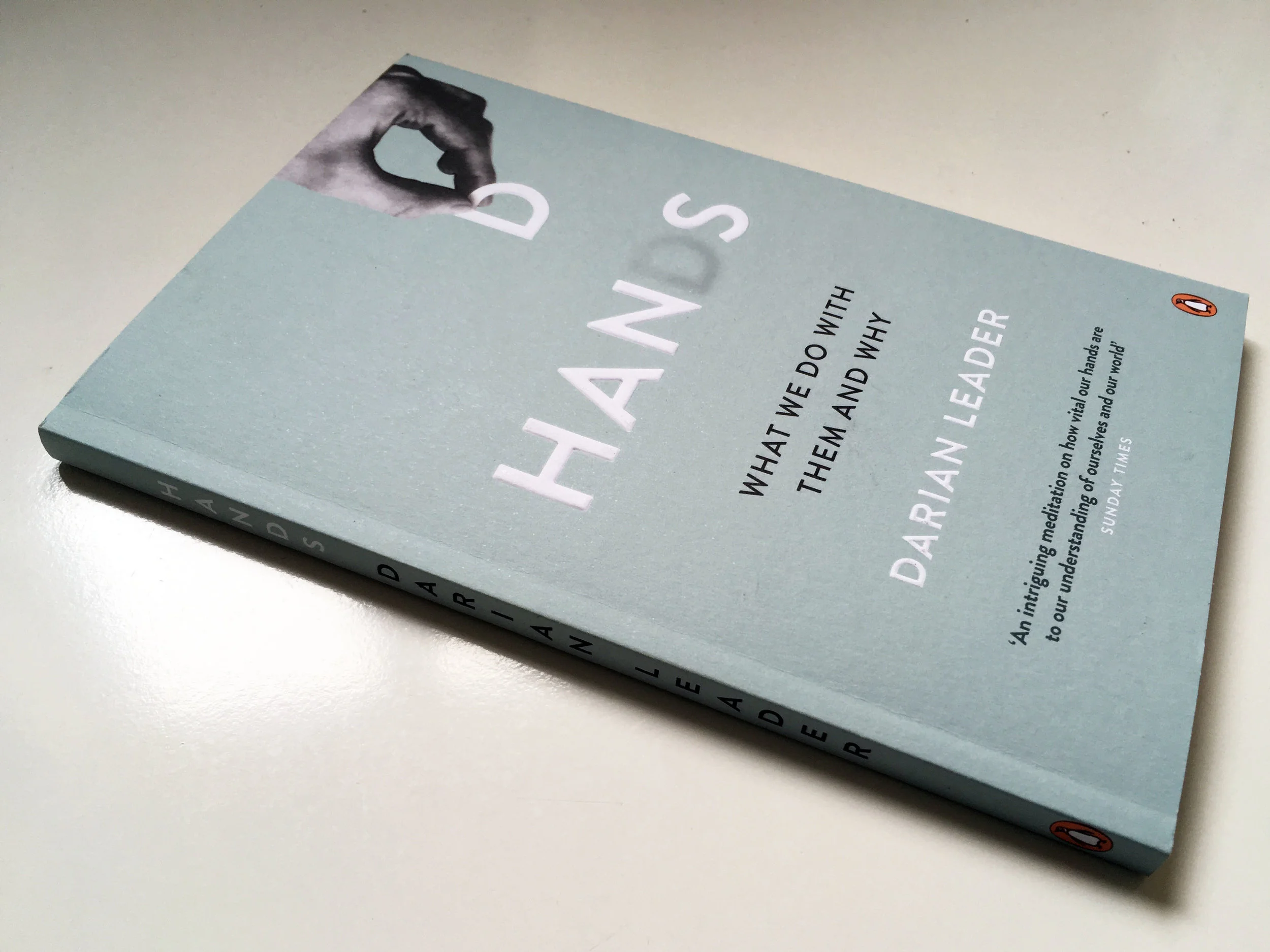Ok, so I know it’s not fair to expect much from a book which is, generously put, slim. But when the quote on the cover says “an intriguing meditation on how vital our hands are to our understanding of ourselves and our world” well, am I not allowed to think this is going to be awesome? Spoiler – this book isn’t really that great. And so, I’m not calling this my ‘recommended book of the month’. It’s merely a starting point for a bit of a digression on the power of books to promise so much and deliver so little, and how I am always willing to take a chance that the next one will be just what I hope it will be.
I picked up this book before my holiday, when I was stocking up on the usual random selection of non-fiction that I like to dip in and out of (this time: Citrus farming in the USA in the 1960s, a history of Brits on the French Riviera in the early 20th Century and an American woman’s experiences as a garden apprentice in Kyoto in the 90s). I had wanted something that looked more at the psychology of creativity or making, something that didn’t just talk about what we make but why. It’s a quest I’m always on and seldom find my grail (although do check out my recommendation of Why We Make Things and Why it Matters, that is a great book). This book is written by a psychiatrist, which seemed like a good starting point. Someone whose life’s work is all about understanding the human mind and why we do the things we do. And in some ways this book is illuminating and made me think, but in terms of delivering in the area that I hoped (namely, why humans use their hands to make stuff) it failed. In fact it was worse than that because the book actively mentioned this topic and then rejected it, ahem, out of hand.
So, I was left with a thin meditation on how we investigate the world through our hands from a young age, how we use our hands to replace our mouths and to feel connected (when our main source of connection, our mothers, start to become less present) and of course there’s the obligatory chapter on masturbation. But no chapter on making. Apparently this displacement activity, of keeping our hands occupied by creating new stuff out of nothing, is not really note-worthy enough for this chap to bother with. Which I find incredibly interesting (why does he feel this way? What is so pedestrian and obvious about making that it doesn’t even get a paragraph?)
So, yes. A bit disappointed with this one. And I suppose I feel bad sharing it with you, but this was the only book I read in the last month even vaguely related to creativity/making, so it will have to do! I am beginning to wish that I had kept a list of all the book titles that sounded amazing but didn’t quite deliver. All those time I’ve opened a book, hoping that it will be full of exactly the things I want to know more about, or full of gems that I’d never imagined, and yet missed the mark. That maybe, if I’d kept a list of these titles, someone somewhere might ask me about it and they would go out and re-write the books of my dreams.
But I don’t let it deter me. I keep picking them up and reading them, not letting the disappointment get the better of me. And here is the lesson, really. Because I am terrible in real life at dealing with things not going the way I hope or plan. I find it very difficult to navigate gracefully without getting derailed. But with books I have an infinite source of patience and forgiveness. I don’t get angry with them and hurl them across the room. I don’t stalk the authors on twitter and berate them for not writing the book I wanted*. No, I usually just donate them to Oxfam and hope someone else has a better time. And that’s a good plan for me IRL – when things don’t turn out quite as I expect, when my hopes are slightly dashed, and things that promise so much don’t live up to my expectations, I should just shrug and hope that it was at least ok for someone else. And start thinking about how I can create the things I’m looking for on my own.
*btw just want to say that despite how this sounds I don’t do these things when stuff goes wrong in a non-book related way, either.
Hands. What we do with them and Why. Darian Leader. Penguin Books
